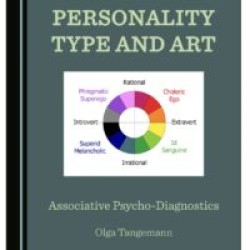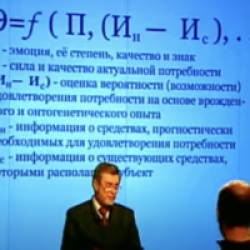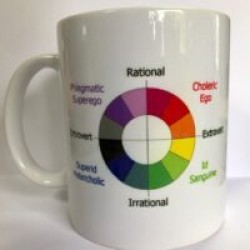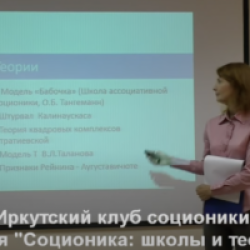By Olimpia
Explain Te and Ti and give examples of the difference or how each processes the external world.
Extroverted Thinking is about the categorization and employment of external, (abstractly) observable logical information. Whenever someone employs Extroverted Thinking, their logic is assessing the objective reality of available information and uses it to the best effect or desired outcome. A classic example of ”objective logical information” is facts. Facts cannot be logically refuted, they are ”objectively true”. “This tower is 100 meters high. This sea is 50 feet deep. This person weighs 60 kg. The capital of Germany is Berlin. Water is also called H20.” A person who is strong at Extroverted Thinking has a natural talent at assessing and collecting a lot of facts and logical information of a practical nature, by which they can deal with the world in an effective manner. For example, if you know the weight of someone, you can calculate their BMI, which in turn can give you more information about their level of health or mass distribution. In that way, Extroverted Thinking can overlap with Extroverted Sensing, for both are dealing with the objective realities of primary objects. However, Extroverted Thinking is ultimately much more abstract and ”mental” than Extroverted Sensing. It has no direct connection to the physical experience of power or energy or tangible objects. For example, the fact that Berlin is the capital of Germany does not require for the person to actually be physically present in Germany to ”experience” or know that piece of information. Furthermore, Extroverted Thinking requires a logical framework that is typically preset by a consensus, like it is the case with measurement tools. Extroverted Sensing is way less bound to logical constructs. People who are strong at Extroverted Thinking are typically good at acquiring all the information necessary to deal with situations in the outside world which require a logical application (opposed to physical, emotional, or intuitive). Additionally, people who value Extroverted Thinking are quite critical of any information that does not adhere to objective standards of logical truth, for instance, any theory that is not backed up by proper research and proof, or at least first-hand experience of cause and effect. Whereas people who are weak at or ignorant of Extroverted Thinking often lack practical know-how or do not use it as effectively, nor are they concerned with logical information fitting into an external standard of measurable traits.
Introverted Thinking is about the subjective categorization of logical information. Someone who is strong at and values Introverted Thinking can be aware of the standards set by Extroverted Thinking, but they are much more attached to their own subjective assessment of logic. They favor models (like Socionics) which make sense of the world, especially in a way that connects facts (or even merely pseudo-facts) in an overarching framework and puts them into relation to each other, opposed to just knowing about the facts themselves separately. The focus is on the inner logical working of things and not so much their external properties and applications. “Does this sentence make logical sense? How does this machinery work? What is the reasoning behind this statement? Why does this person act this way?” People who are both strong at Introverted Thinking and Intuition often times lack the desire or ability to put any logical information or findings into ”work”. Differently, from Extroverted Thinking, Introverted Thinking itself has no need for the practical application of logical information. The main focus is the logical understanding of the world. Introverted Thinking is even more abstract than Extroverted Thinking, for its connection with factual reality can be looser; or rather, it is even more about models and constructs than Extroverted Thinking is. People who are strong at Introverted Thinking have a logical model or blueprint of the world in their minds, which needs to be continually updated as new information is being processed. Similarly to Introverted Feelers, Introverted Thinkers have developed a subset of personal standards over time, which however are not based on feeling but logic. An Introverted Thinker is constantly evaluating whether something makes logical sense according to their personal standards, and how the information fits into their blueprint of the world. If the particular piece of information does not fit into the blueprint and seems ”illogical”, it is quick to be rejected by someone who is strong at and values Introverted Thinking, even if some outside source suggests it to be factually true. In such situations, someone who values Extroverted Thinking will deem the Introverted Thinking valuer to be ”pig-headed“ and ”unreasonable“. They cannot understand how someone could reject information that is ”true“ by objective measures. Extroverted Thinking valuers are more inclined to ”fact-check”, whereas Introverted Thinking valuers are more inclined to ”logic-check”, as in, whether this statement ”makes logical sense“ or not. “If A is red, and B is blue, and C is the mix of A and B, then C must be purple.” People who are weak at Introverted Thinking have a poor assessment of logical connections between things, and no to few standards that are succinct at divulging the ”logical falsity” of statements. Those people are often times quite contradictory in their views and assessments of things, especially when it comes to logic; people who are stronger at Introverted Thinking can easily point out those logical contradictions. If the person who is weak at Introverted Thinking additionally does not value it, they won’t be concerned with those discrepancies, and instead, emphasize the higher value of their Introverted Feeling judgments.










Recent comments